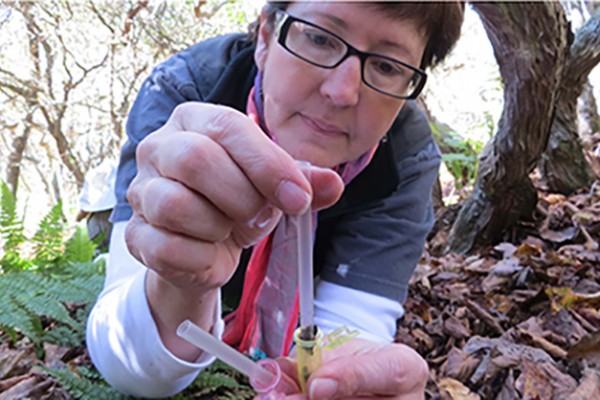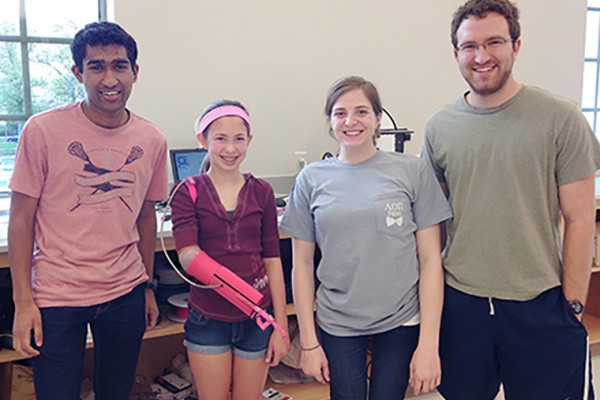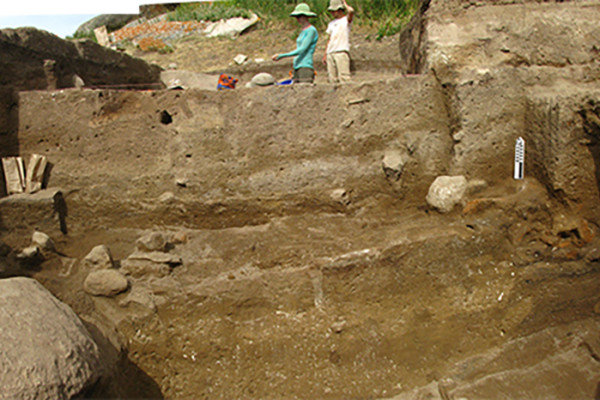Humans have been changing Chinese environment for 3,000 years
A widespread pattern of human-caused environmental degradation and related flood-mitigation efforts began changing the natural flow of China’s Yellow River nearly 3,000 years ago, setting the stage for massive floods that toppled the Western Han Dynasty, suggests new research from Washington University in St. Louis.
WUSTL to race wild strain of amoeba in World Dicty Race 2014
Biology researchers at Washington University in St. Louis are placing their bets on the wild side as they prepare a pack of social amoeba for competition Friday, May 16, in the first-ever Dicty World Race, an international science competition that carries a $5,000 prize for the single-celled organism deemed to be the “smartest and fastest” in negotiating a microscopic maze.
Test of KMOV video player embed (bimvid)
Test of KMOV video player embed (bimvid)
WUSTL students ‘print’ pink prosthetic arm for teen girl
Three biomedical engineering seniors at WUSTL are gaining national attention for the robotic prosthetic arm they developed for a 13-year-old St. Louis girl. Built on a 3-D printer, the arm is cheap, functional — and pink.
Balota, Teitelbaum to receive 2014 faculty achievement awards
David Balota, PhD, a leader in the study of cognitive breakdowns that occur in Alzheimer’s, and Steven L. Teitelbaum, MD, a world-renowned bone biologist, will receive Washington University in St. Louis’ 2014 faculty achievement awards, Chancellor Mark S. Wrighton announced.
Science of learning book offers tips to ‘Make it Stick’
“Make it Stick: The Science of Successful Learning” offers students of all ages a clear and
compelling primer on the best and worst ways to store and retrieve new
knowledge. The book is co-authored by psychologists Henry L. “Roddy” Roediger III and Mark A. McDaniel, leading experts on human learning and memory at Washington University in St. Louis, along with nonfiction writer and novelist Peter C. Brown.
Healthy economy requires more than innovation, says WUSTL economist
WUSTL economist Steven Fazzari sees the need for building a strong macroeconomy that can establish a healthy demand for the new products and services created by innovators. His research suggests that innovation alone is not sufficient to build a healthy economy.
Kidder installed as the Edward S. and Tedi Macias Professor
Anthropologist Tristram Kidder, PhD, was installed April 7 as the Edward S. and Tedi Macias Professor in Arts & Sciences during a ceremony in Holmes Lounge, Ridgley Hall. Kidder has served as chair of the Department of Anthropology since 2008.
From Jason Collins to Michael Sam: Examining ‘watershed’ moment in American sports
A symposium exploring social and cultural issues at the intersection of professional sports, race, gender and sexual identity will attract leading scholars and book authors to Washington University in St. Louis on April 11.
Ancient nomads spread earliest domestic grains along Silk Road, study finds
Charred grains of barley, millet and wheat deposited nearly 5,000 years ago at campsites in the high plains of Kazakhstan show that nomadic sheepherders played a surprisingly important role in the early spread of domesticated crops throughout a mountainous east-west corridor along the historic Silk Road, suggests new research from Washington University in St. Louis.
View More Stories



